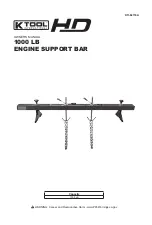
BAE AUDIO – G10
BAE G10 ©2017
3
EQ Frequencies (Continued)
Upper mids – 2kHz-4kHz
As mentioned above, this register is where your ears aim a lot of their focus. Adding or subtracting here can raise
or lower the snap of higher instrumentation quickly. Sounds like the pop of snare, and the brash blare of trumpet
can all be affected here. Adding a little push here can give more clarity to vocal consonances, as well as acoustic
and electric guitar, and piano.
Presence/sibilance register – 4kHz-7kHz
This is commonly referred to as the presence zone, and leads into the highest range of pitches produced by most
natural instruments. Boosting the lower end of this scale can make the music sound more forward, as if pushed
a little closer to your ears. Backing it off can open the sound, and push instruments away for more depth. The top
end of this region is also responsible for the sharp hissing “s” of vocals, known as sibilance. If sharp consonants
are popping out at you like the bite of a snake, cutting a few dB from around 5-7kHz can solve the issue, and
save you some pain and suffering.
Brilliance/sparkle register 7Hz-12kHz
Raising or decreasing the level at the lower end of this register can help bring some vibrance and clarity, adding
a tighter attack and a more pure sound. If things are a little too sharp, or causing some pain after listening for
too long, lowering the bottom end of this register can help out quite a bit. Towards the top is where things start
to space out into less tangible definition, moving away from what you can hear more towards what you can feel.
That shimmering resonance at the tip of a cymbal crash floats around in the regions of this space.
Open air – 12kHz -16kHz
Once you get up here, things really become more subjective. The bottom registers continue to affect the higher
overtones of instrumentation, and synth effects from electronic music can pop around in that region as well.
Moving further up, it becomes more about creating a spacier, open sound. However, there are very few points in
which you’d want to affect the sound much around 14kHz or above — many older listeners won’t be able to even
hear these sounds. If you want to boost a bit of space in the belfries of the music, you can add some level here.
Too much, however, will make things start to sound synthetic.
Содержание G10 500 Series
Страница 1: ...G10 INSTRUCTION MANUAL BAE AUDIO...
Страница 7: ...BAE G10 2017 6 BAE AUDIO G10 RECALL SHEET...
Страница 8: ...www baeaudio com...


























